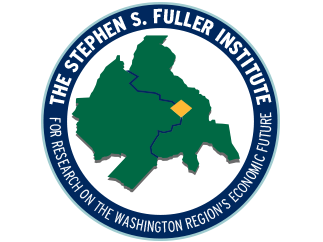3rd Annual Economic Forum Remarks by Bob Buchanan, Principal, Buchanan Partners, LLC; President, The 2030 Group
Download remarks as a PDF>>
As we transition from one decade to another and discuss where our region is now and where we’d like it to be in 10 years, I want to take this opportunity to give the perspective from one who has been immersed in regionalism over the past 10 years.
Unlike this time 10 years ago, the pace of change is increasing faster than ever, the stakes are greater if we don’t succeed, and yet we are building on a base we never could have imagined when the 2030 Group started out in 2009.
HQ2, MetroNow, and COG’s Housing Affordability Initiative have generated a level of leadership and commitment to regional priorities that have truly transformed Greater Washington from only being branded as the Federal City to a region with many more desirable attributes and opportunities. Unfortunately the statistics suggest that we are still at the crossroads. Will we be able to realize that potential?
When the 2030 Group began its mission to generate regional awareness and priorities, we commissioned Steve Fuller to document why the region could no longer grow just through our individual jurisdictions. We had to collaborate and determine which regional investments would make us competitive and best able to attract and retain that highly educated workforce that make us unique. Up to then we had been the beneficiary of an amazing growth in federal procurement dollars flowing into our economy, and our economy was about to overtake Chicago to rank 3rd largest in the country. We had become so comfortable and complacent that we did not think regionalism was necessary or worth the effort. Sequestration and threats of government shutdowns changed things so dramatically that when Steve Fuller designed the Roadmap for the Washington Region’s Future Economy soon thereafter, the regional collaboration to support the Roadmap was unprecedented.
Leadership, vision, commitment, luck, and timing have put regionalism in the forefront, and the successful HQ2, MetroNow, and COG’s Housing Initiative have been the result.
We can’t plan for luck or timing, but we do need the next generation of leaders with vision and commitment to step up to make the next decade benefit from those leaders who stood out over this one now coming to an end. I want to take this opportunity to name some of them:
Steve Fuller informed us, pushed us, and knew our region better than anyone.
Til Hazel, Sid Dewberry, John Toups, Dwight Schar, and Milt Peterson were at the core of how Northern VA became the commercial power it is, yet they recognized that the same efforts were needed across the entire region. They were the impetus of how and why the 2030 Group formed and flourished.
Tony Williams not only transformed the District but in his executive role at Federal City Council, he saw the need to support and promote regionalism. MetroNow never would have happened without him.
Chuck Bean, Executive Director at COG, transformed the way COG operated and made it a significant regional player on multiple fronts on issues that organization had never considered.
So who’s next? There was a record number of you who registered for this summit to learn what the 2020’s can be. I hope you are thinking about what your role can be going forward.
Before turning it over to a panel who will be part of that next generation of leaders, I want to mention a few more things that I hope will both inspire and challenge you.
There is an amazing and unprecedented confluence of transportation, unmet housing needs, and the environment happening right now. The first two have always been linked together. But with climate adaptation/change and the impact of new developments on our environment, all three are becoming interlocked as never before. I believe this region has not only the chance but obligation to join and combine those forces. Our communities will not accept the level of new residential units needed for housing affordability and where it should be built if that means more cars. They will be joined by environmentalists in that pushback unless we are prepared to transform our bus system to make transit as attractive and minimal an impact on our environment as it is in other parts of our country and the world.
It is an economic imperative for us to resolve our unmet housing needs. Forget workforce development unless we do. And for this classic single occupancy car driver, I have come to realize that with some 70% of us living in urban areas in the not too distant future, our ability to manage that growth requires a transportation system that is efficient, effective, and environmentally sensitive.
